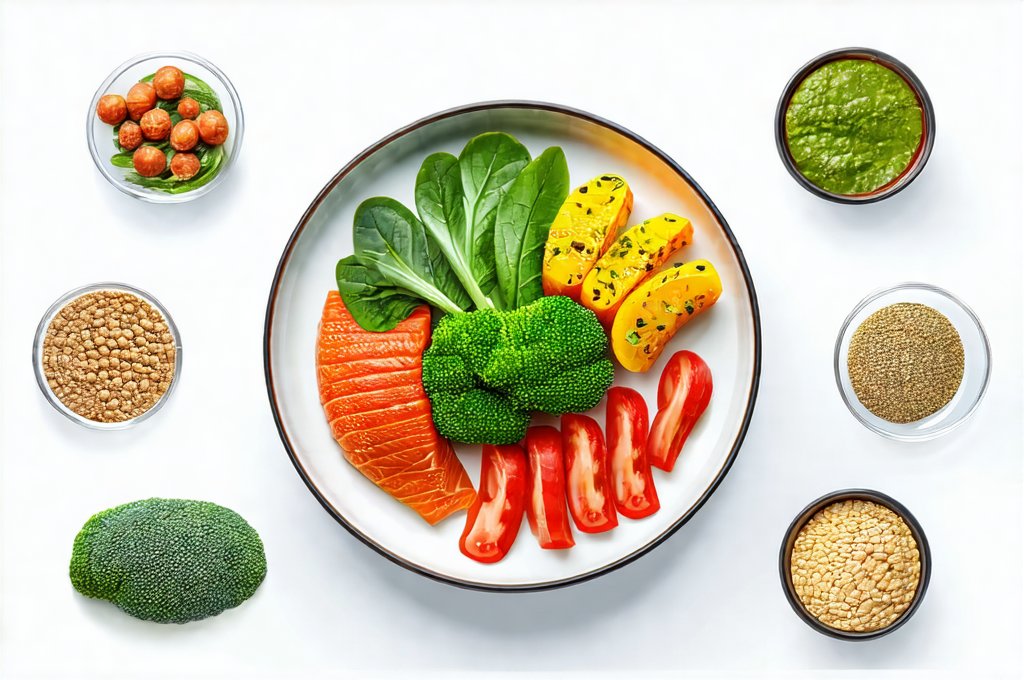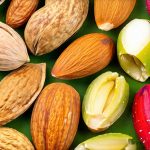Many individuals experience digestive discomfort, ranging from bloating and gas to more severe symptoms like abdominal pain and irregular bowel movements. Often, these issues are linked to dietary habits, and adopting a plant-based approach can significantly improve gut health. A plant-based diet emphasizes whole, unprocessed foods derived from plants – fruits, vegetables, legumes, grains, nuts, and seeds – while minimizing or eliminating animal products. This isn’t necessarily about strict veganism; rather, it’s about prioritizing plant foods for their inherent benefits to digestion and overall wellness. The key is focusing on nutrient-rich options and understanding how different foods impact your individual gut microbiome. Considering plant-based and animal fats can help you find what works best for your system.
Inflammatory Bowel Syndrome (IBS) affects a substantial portion of the population, characterized by a cluster of gastrointestinal symptoms without detectable structural abnormalities. While IBS doesn’t have a single cure, dietary modifications are often the first line of defense in managing symptoms. Plant-based diets can be particularly helpful for IBS sufferers due to their high fiber content (when introduced gradually), prebiotic properties that nourish beneficial gut bacteria, and reduced inflammatory potential compared to diets heavy in processed foods and animal products. This article will explore a plant-based meal plan tailored to promote digestive wellness and manage IBS symptoms, offering practical guidance and dietary strategies to help you reclaim your gut health. If chronic fatigue is also an issue, exploring meal planning for discomfort can be beneficial.
Understanding the Gut-Plant Connection
The human gut is home to trillions of microorganisms – bacteria, fungi, viruses, and other microbes – collectively known as the gut microbiome. This complex ecosystem plays a vital role in digestion, nutrient absorption, immune function, and even mental health. A diet lacking in plant-based foods can disrupt the delicate balance of this microbiome, leading to dysbiosis (an imbalance of gut bacteria) and contributing to digestive issues like bloating, gas, and irregular bowel movements. Plant fibers act as prebiotics, providing nourishment for beneficial gut bacteria. When these bacteria thrive, they produce short-chain fatty acids (SCFAs), such as butyrate, which have anti-inflammatory properties and support the health of the intestinal lining.
A plant-based diet naturally reduces the intake of inflammatory compounds often found in processed foods, saturated fats, and excessive animal protein. These compounds can exacerbate gut inflammation and worsen IBS symptoms. Furthermore, plant-based meals are generally easier to digest than heavy, meat-centered meals, reducing the burden on the digestive system. Focusing on whole, unprocessed plant foods provides a wider range of vitamins, minerals, and antioxidants that support overall gut health and resilience. It’s important to note that introducing fiber quickly can sometimes worsen symptoms for individuals with IBS; therefore, gradual increases are crucial. Understanding digestive rhythm is also key to maximizing gut health.
A 7-Day Plant-Based Meal Plan for Digestive Wellness & IBS
This meal plan is designed as a starting point and should be adapted to individual tolerances and preferences. It focuses on low-FODMAP (fermentable oligosaccharides, disaccharides, monosaccharides, and polyols) principles, which can be helpful for managing IBS symptoms, while still providing ample nutrients and fiber. Remember to listen to your body and adjust the plan accordingly. Hydration is also key – aim for at least 8 glasses of water per day.
Day 1: Breakfast: Oatmeal (made with lactose-free milk or almond milk) topped with blueberries and a sprinkle of chia seeds. Lunch: Large salad with spinach, cucumber, carrots, bell peppers, and grilled tofu, dressed with olive oil and lemon juice. Dinner: Lentil soup with brown rice. Day 2: Breakfast: Smoothie made with banana, spinach, almond milk, and protein powder (plant-based). Lunch: Quinoa bowl with roasted sweet potatoes, black beans, and avocado. Dinner: Vegetable stir-fry with tofu and brown rice noodles. Day 3: Breakfast: Whole wheat toast with avocado and a sprinkle of hemp seeds. Lunch: Chickpea salad sandwich on whole grain bread. Dinner: Baked salmon (optional for those who eat fish) with roasted asparagus and quinoa. Day 4: Breakfast: Chia seed pudding made with almond milk and topped with raspberries. Lunch: Leftover baked salmon and asparagus. Dinner: Vegetarian chili with cornbread. Day 5: Breakfast: Scrambled tofu with spinach and whole wheat toast. Lunch: Large salad with mixed greens, cucumber, tomato, and chickpeas, dressed with olive oil and balsamic vinegar. Dinner: Sweet potato and black bean tacos on corn tortillas. Day 6: Breakfast: Oatmeal (made with lactose-free milk) topped with sliced peaches and walnuts. Lunch: Leftover sweet potato and black bean tacos. Dinner: Vegetable curry with brown rice. Day 7: Breakfast: Smoothie made with mango, spinach, almond milk, and flax seeds. Lunch: Quinoa salad with roasted vegetables and a lemon-tahini dressing. Dinner: Homemade pizza on whole wheat crust with tomato sauce, spinach, mushrooms, and vegan cheese (optional).
This plan incorporates low-FODMAP foods where possible but individual tolerances vary. Keep a food diary to track what works best for you. For busy professionals, a gut-friendly meal plan can be especially helpful.
Incorporating Low-FODMAP Foods
Low-FODMAP diets are often recommended for individuals with IBS as they reduce the amount of fermentable carbohydrates that can trigger digestive symptoms. These carbohydrates are poorly absorbed in the small intestine, leading to fermentation by gut bacteria and resulting in gas, bloating, and discomfort. Identifying and reducing high-FODMAP foods can significantly alleviate these symptoms. However, it’s important to avoid overly restrictive diets as they can negatively impact gut microbiome diversity.
- Fruits: Choose low-FODMAP fruits like blueberries, strawberries, oranges, grapes, and bananas (ripe, but not overripe). Avoid apples, pears, mangoes, peaches, and watermelon in large quantities.
- Vegetables: Opt for carrots, spinach, cucumber, zucchini, bell peppers, lettuce, and tomatoes. Limit or avoid onions, garlic, broccoli, cauliflower, mushrooms, and asparagus (in larger portions).
- Grains: Rice, oats (in moderation), quinoa, and corn are generally well-tolerated. Avoid wheat and rye in excessive amounts.
- Legumes: Canned chickpeas and lentils can be tolerated by some individuals with IBS, but start with small portions.
- Sweeteners: Use maple syrup, stevia, or lactose-free milk instead of honey, high fructose corn syrup, or artificial sweeteners.
Gradually reintroduce foods to identify your personal triggers. Working with a registered dietitian specializing in gut health can provide personalized guidance on implementing a low-FODMAP diet effectively and safely.
The Role of Fiber & Gut Microbiome Diversity
Fiber is essential for digestive health, but the type and amount matter significantly, especially for those with IBS. Insoluble fiber adds bulk to stool and promotes regularity, while soluble fiber dissolves in water and forms a gel-like substance that slows digestion and can help regulate blood sugar levels. Plant-based diets are naturally rich in both types of fiber. However, individuals with IBS may be sensitive to certain types of fiber, such as those found in raw vegetables or large quantities of beans.
- Gradual Increase: Begin by slowly increasing your fiber intake over several weeks to allow your gut microbiome to adapt.
- Hydration is Key: Drink plenty of water when increasing fiber intake to prevent constipation and bloating.
- Choose Soluble Fiber: Incorporate foods rich in soluble fiber, such as oats, barley, applesauce (low FODMAP), and carrots.
- Fermented Foods: Include fermented foods like sauerkraut, kimchi, or kombucha (in moderation) to introduce beneficial probiotics that support gut microbiome diversity.
A diverse gut microbiome is a sign of a healthy digestive system. Promoting this diversity through a varied plant-based diet, incorporating prebiotics and probiotics, and minimizing processed foods can significantly improve digestive function and overall well-being.
Mindful Eating & Stress Management
Diet is only one piece of the puzzle when it comes to digestive wellness. Stress and emotional factors can profoundly impact gut health and IBS symptoms. Mindful eating – paying attention to your food, savoring each bite, and being aware of hunger and fullness cues – can improve digestion and reduce stress levels.
- Eat Slowly: Take your time while eating to allow for proper chewing and digestion.
- Minimize Distractions: Avoid distractions like TV or smartphones during meals.
- Practice Deep Breathing: Incorporate deep breathing exercises before or after meals to calm the nervous system.
- Manage Stress: Engage in stress-reducing activities such as yoga, meditation, or spending time in nature.
Chronic stress can disrupt gut motility, alter gut microbiome composition, and increase inflammation. Addressing stress through lifestyle modifications is crucial for managing IBS symptoms and promoting long-term digestive health. Remember that building a healthier relationship with food and your body is just as important as what you eat. For those experiencing daily nausea or discomfort, a gentle meal plan can be a good starting point. Additionally, understanding digestive rhythm and regularity is key to maintaining balance. If considering supplements, it’s worth comparing dairy-based vs vegan probiotics. Lastly, this approach can be beneficial for the entire family with a family-friendly meal plan.


















